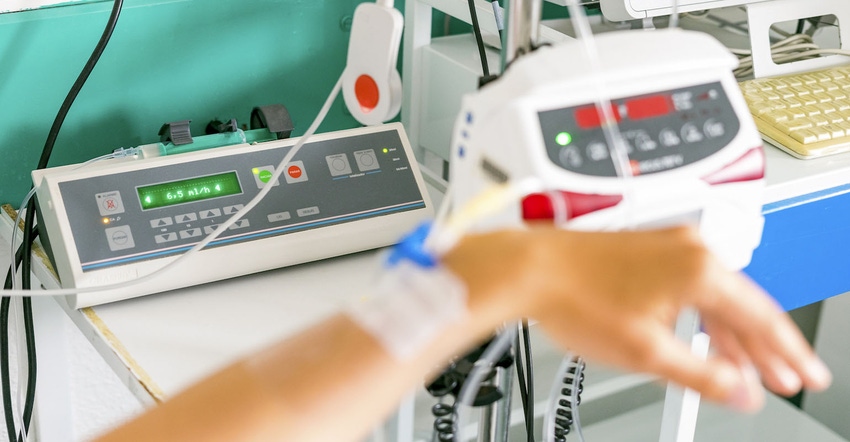Some are now calling for a phase-out of plastics in the healthcare sector. That would be a fatal mistake.
September 10, 2020

In the past, few people gave a thought to the role plastics play in the diagnosis and treatment of disease. Countless times a day nurses remove sterile plastic oxygen masks from plastic packaging and patients are treated with plastic-based medical devices. The patient probably did not even spare a thought as to why the treatment was relatively painless and completely safe. The reason? The device was made of plastic.
In recent years, the proliferation of plastic products has become the center of much debate, but the value of polymers in the healthcare space typically has not been questioned. Until now. The COVID-19 pandemic paradoxically has sparked renewed criticism of plastic, and this time, plastic used in healthcare is the culprit.
Mountains of plastic waste from hospitals
International media have reported on the increasing amount of COVID-19-infected hospital-generated plastic waste in France. At the height of the crisis in Wuhan, China, waste volume increased sixfold. In Italy, incinerators had to operate 24 hours a day to keep up with the huge quantity of waste.
The increasing volume of plastic waste coming from hospitals has led some to call for phasing out the use of plastics in medical facilities. Recently, Healthcare Without Harm held a webinar with the ominous title, "Towards Plastic-Free Healthcare," and the plastics industry in Australia reports that the use of plastic in hospitals has been almost demonized. The plastiphobes Down Under want to turn back the clock to a time when metal, glass, and porcelain devices were designed to be sterilized and reused multiple times.
A timely reminder that plastics revolutionized healthcare
It makes intuitive sense to limit large quantities of waste at the source, but reducing the use of plastics in medical devices and protective equipment simply is not viable. Before “green” organizations start advocating for plastic-free hospitals — and politicians begin to listen to them — we must sound the alarm and provide some historical context. We have to remind people why plastics were introduced in hospitals in the first place.
The most significant advantage of plastics is that they enable the production of safe and affordable disposable devices, which has led to a significant reduction in cross-contamination. In the past, the equipment was reused, which led to transmission of infections. It goes without saying that patient and practitioner safety improved exponentially when fragile glass containers for blood, urine, and IV solutions were replaced by robust plastic containers.
The endless design possibilities of plastics also give doctors and nurses access to an almost unlimited range of medical equipment, which, it should be noted, is superior for the diagnosis, treatment, and comfort of the patient.
Recycling is the way forward
This is not to say that we should simply ignore the increase in medical plastic waste. If it is not possible to wash and reuse the equipment, recycling is the best alternative. Pilot projects involving PVC, the most widely used polymer in healthcare, show that it is possible to recycle plastic-based medical devices safely. In the UK, for instance, around 40 hospitals take part in the RecoMed take-back scheme for PVC, which is financially supported by VinylPlus. In Australia and New Zealand, more than 200 hospitals collect and recycle medical devices made from PVC.
When it comes to recycling medical devices that may be infected with the COVID-19 virus, it is imperative to take precautions, of course. According to a study in the Lancet, the virus will survive seven days on plastic surfaces, which means the waste should be quarantined at least 10 days to stay on the safe side. In existing schemes, this rule is already applied.
To sum up, demonizing plastics in healthcare is a dead end. Today, we reap the fruits of 50 years of innovation in the plastics industry, which has given us the best healthcare in the history of the world.
About the author
Ole Grøndahl Hansen is Project Manager, at PVCMed Alliance.
About the Author(s)
You May Also Like


